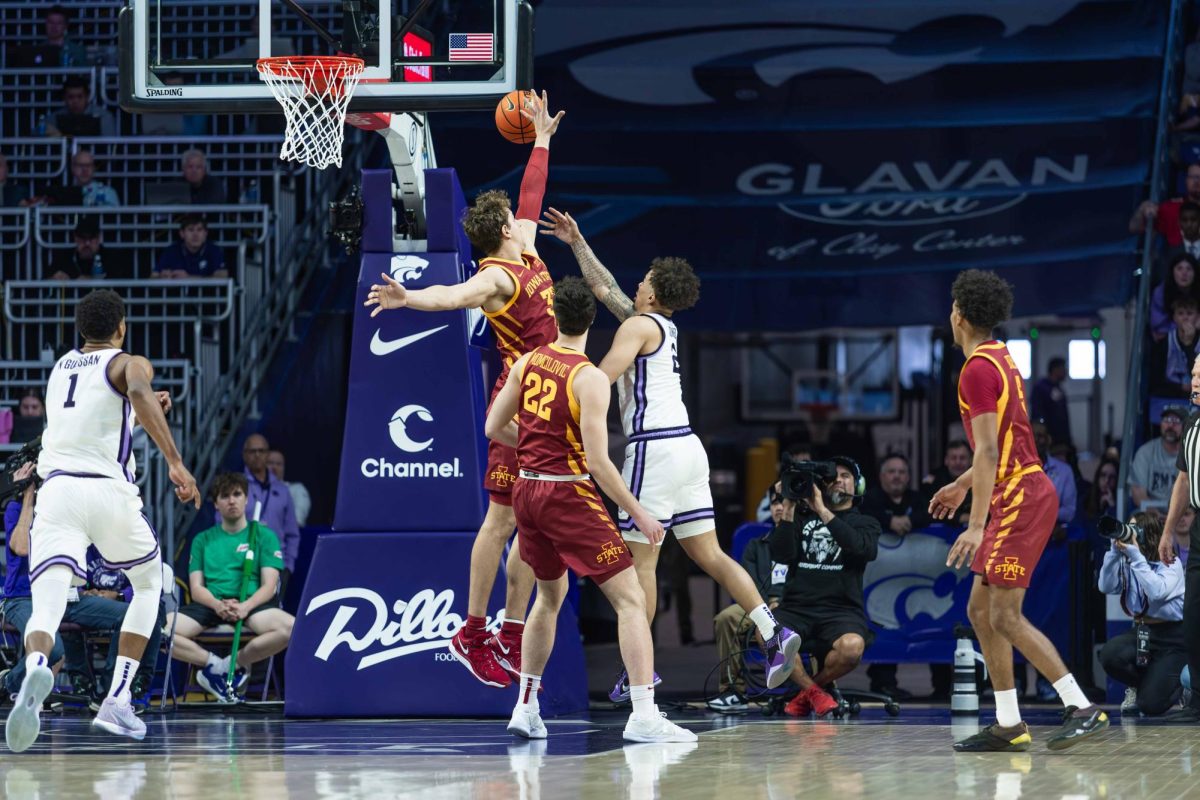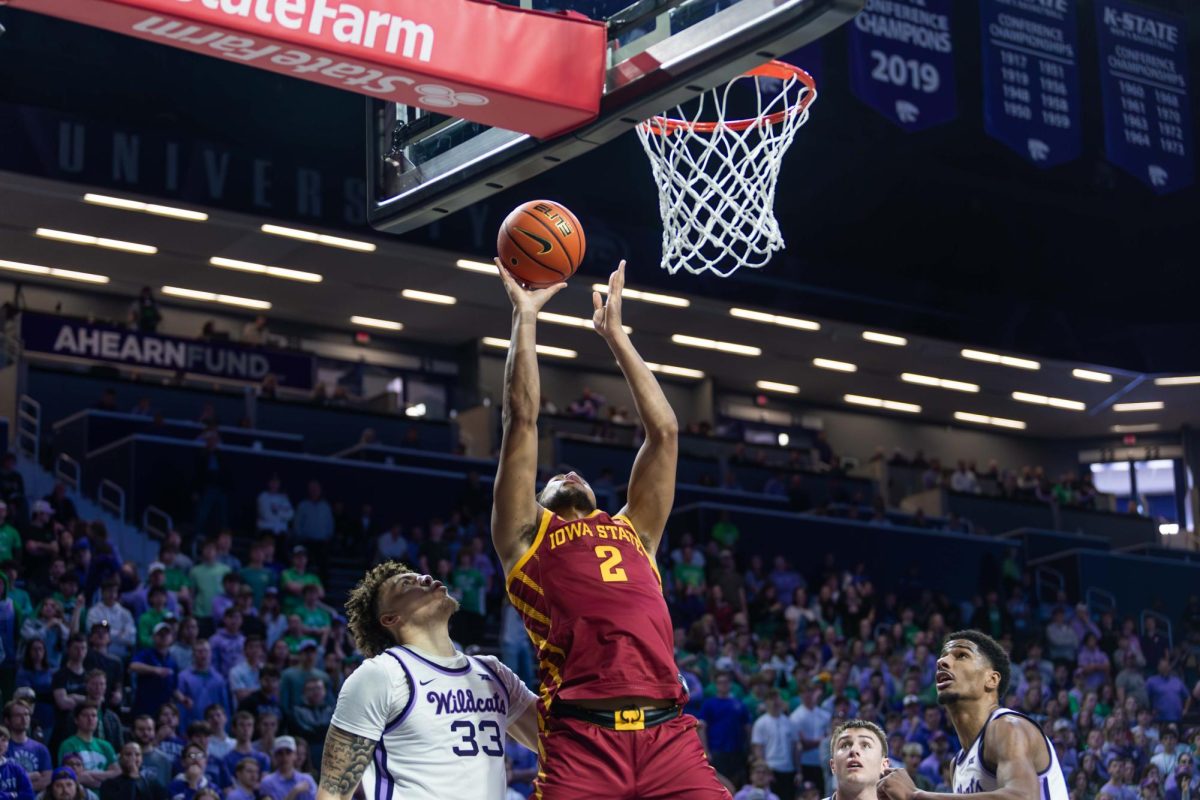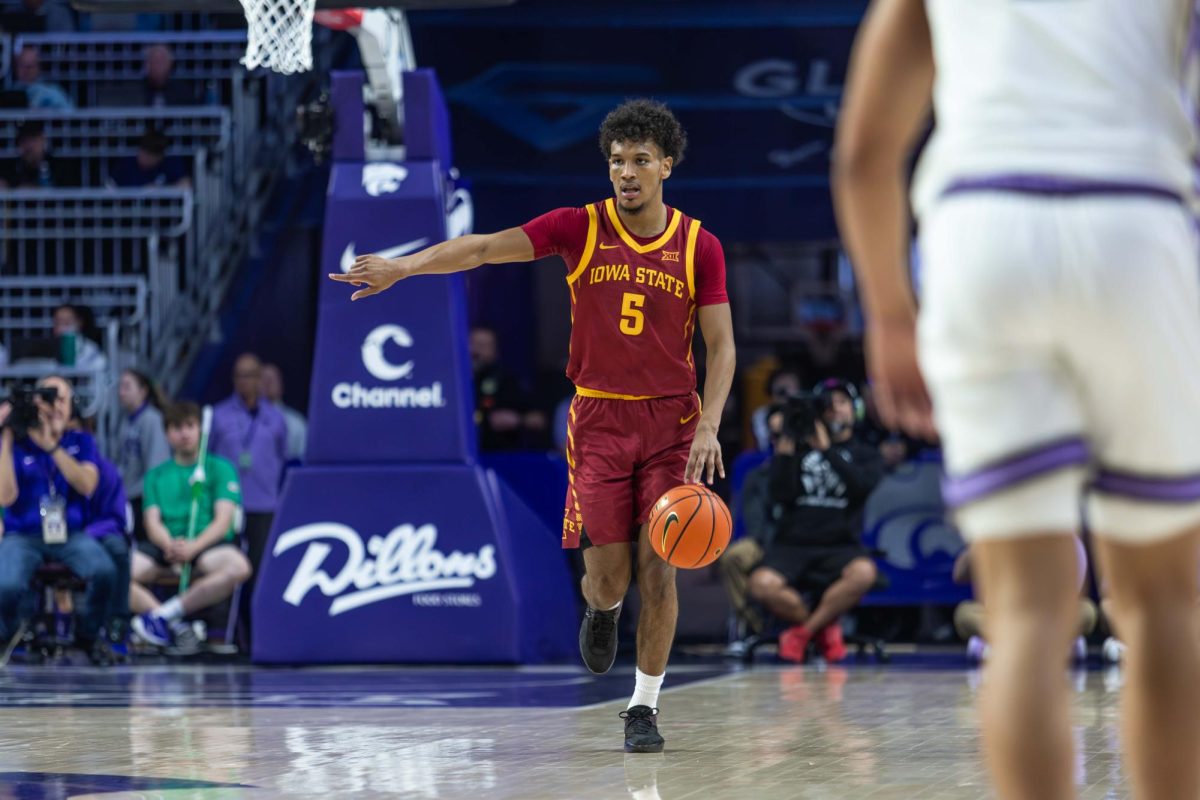High school relationships can be strained
June 4, 2007
Having a high school sweetheart means getting to see each other pretty much every day. But if one graduates and goes to college, things can get a little more complicated.
Barret Schloerke, freshman in engineering, and his girlfriend, Carey Brooks-Mabry, a senior at Gilbert High School, have had to deal with some of the problems that come with being in that type of relationship.
“We used to be on the same daily class schedule going from 8 a.m. to 3 p.m. every day,” Schloerke said. “Now I may have a class that goes until 5 p.m. and there’s more homework for me.”
Besides managing their time better and coordinating their different schedules, Brooks-Mabry feels the transition has been hard because she’s still doing the high school thing that Schloerke has already left behind.
“He’s in a whole new stage of life and he’s already done what I’m doing so sometimes it’s hard for him to want to go back because he’s doing his own things,” she said.
Teresa Tsushima, assistant professor of sociology, believes that an added factor in the separation is that when a person goes to college, it’s a new lifestyle they are adapting to.
“Research shows that when students do go to college, they often times make new friends and join new groups and activities and through those networks they will meet potential dating partners,” Tsushima said.
This situation may put college-goers in the relationship more at risk for extradyadic dating, or dating behind the partner’s back, because of the new networks they establish.
Tsushima said it can, however, also be a risk for the person remaining in high school.
One obstacle Schloerke has had to face is going from knowing the same people and having the same opportunities in high school with Brooks-Mabry to being in a college fraternity.
“The guys’ll be like, ‘Be social and meet some girls’ and it’s hard to say, ‘No, I have a girlfriend’ every single time.”
On Brooks-Mabry’s end, it was hard at first deciding where she wanted to go to college during her senior year because she knew it would affect her relationship with Schloerke. But it also helped that he was supportive of the colleges that were the best fit for her regardless of their relationship status.
“I always kept asking Carey to pretend I wasn’t here [in the relationship] and to ask herself, ‘What college do I need or want to go to?’ and if it still fits your idea of our relationship, then go for it.”
As for advice for couples in similar situations, Tsushima believes it’s important for the couple to have talked about the issue before one person leaves for college.
“Optimally, they should have the conversation about how to deal with the relationship, what they are agreeing to and what strategies are they going to use if they maintain the relationship before the college-goer actually leaves so they can establish ground rules that they both agree to,” she said.
Brooks-Mabry believes the couple should be established and comfortable with each other for some time before the transition.
“Unless you’ve been in the relationship for a long time and it’s serious, don’t try it,” Brooks-Mabry said.
Tsushima believes if the couple meets in high school, have had the opportunity to date each other for a while and are sure they want to make a long-term commitment, they have a better chance of the relationship not fading if they continue to see each other after the transition.
“It will be harder to maintain the commitment if they don’t see each other on a regular basis because distance is hard on a relationship,” Tsushima said.
Currently, Brooks-Mabry and Schloerke try to see each other at least once every other week and are both in the ISU Hip Hop Club. Even though the biweekly meetings for the club don’t count as dates, it is still a time when they can enjoy each other’s company.
“AIM [AOL Instant Messenger] and phone calls can only give you so much and it’s totally different when you’re in the presence of the other person,” Schloerke said.
So despite some of the hardships they have had to endure, Brooks-Mabry and Schloerke said there have been positive things that have come out of their relationship after the transition.
“We have to trust each other more because we’re not with each other all the time and we appreciate the time together more because of the separation,” Brooks-Mabry said.






